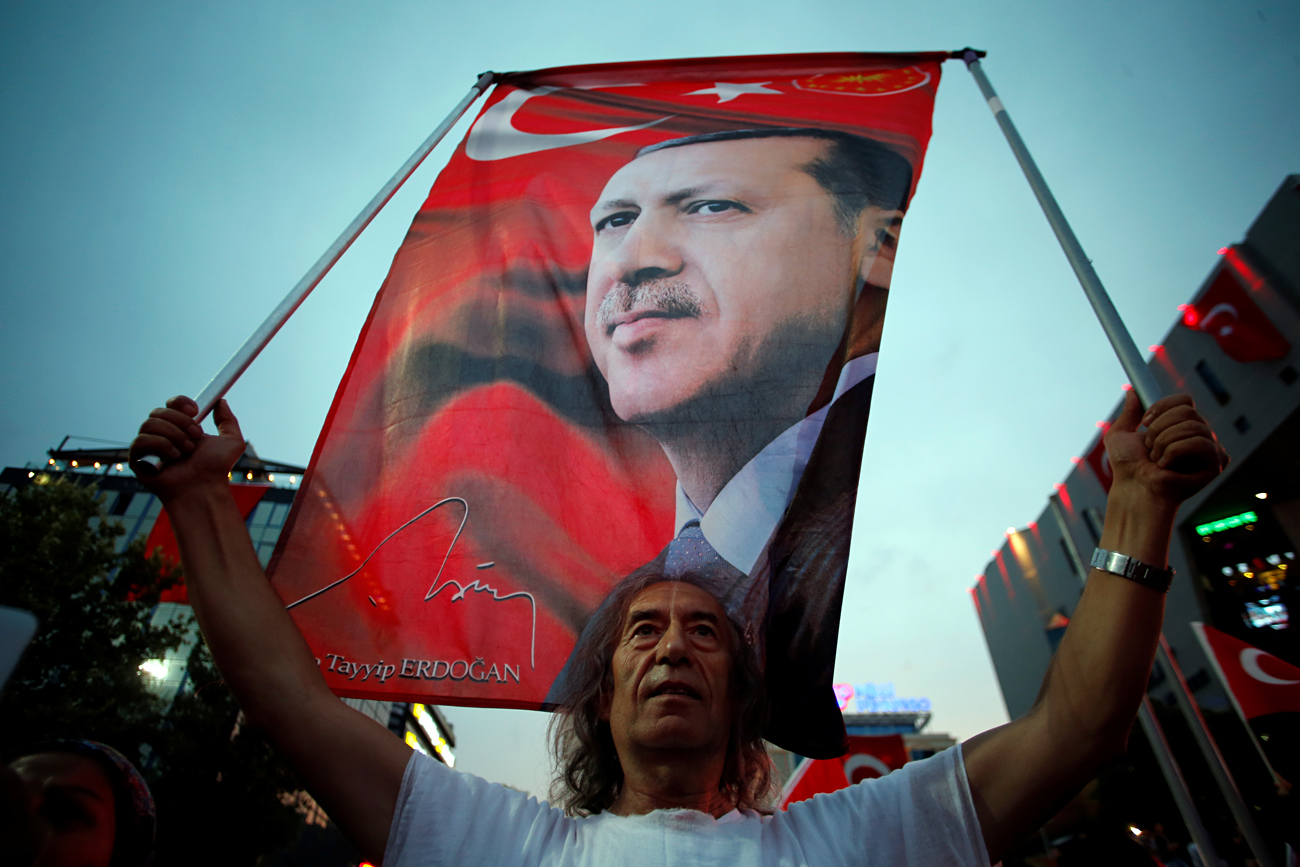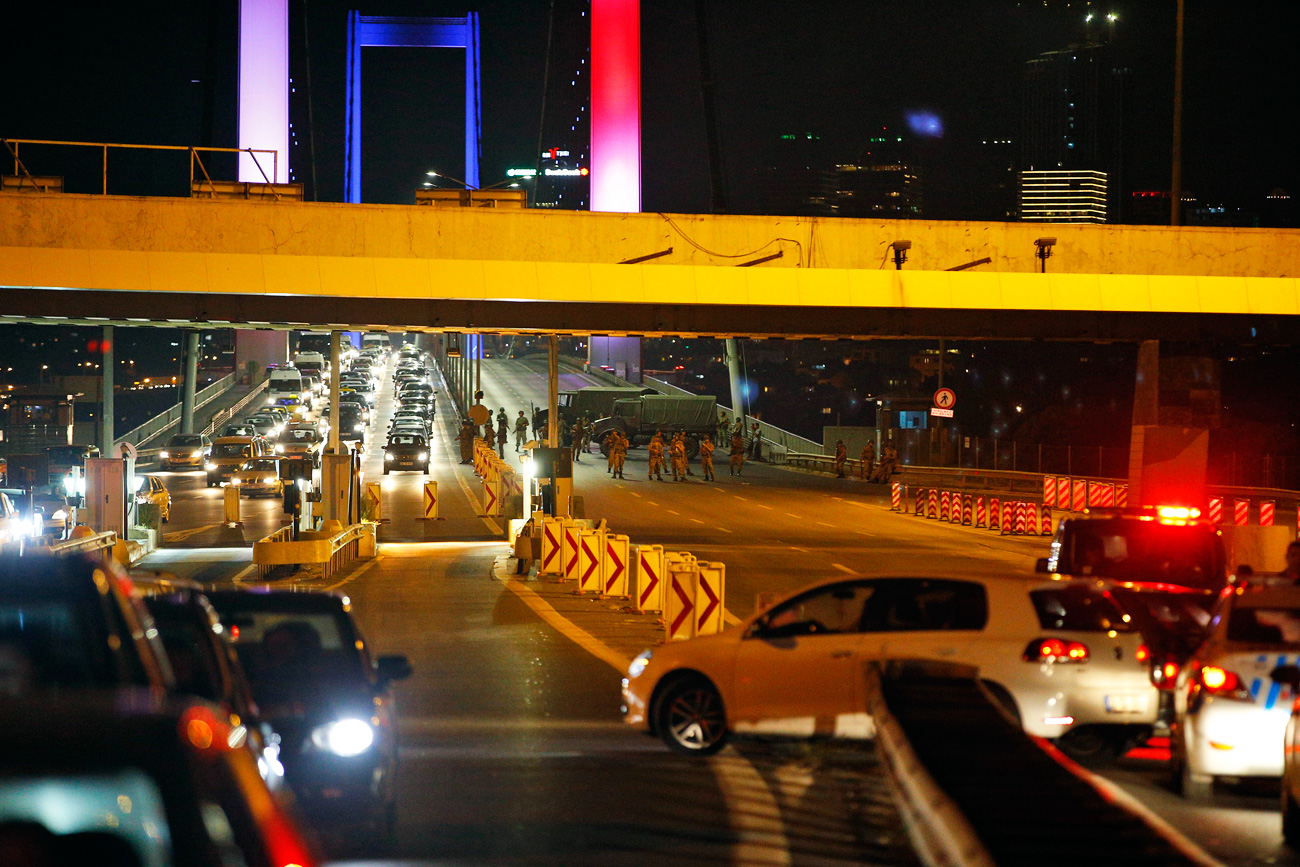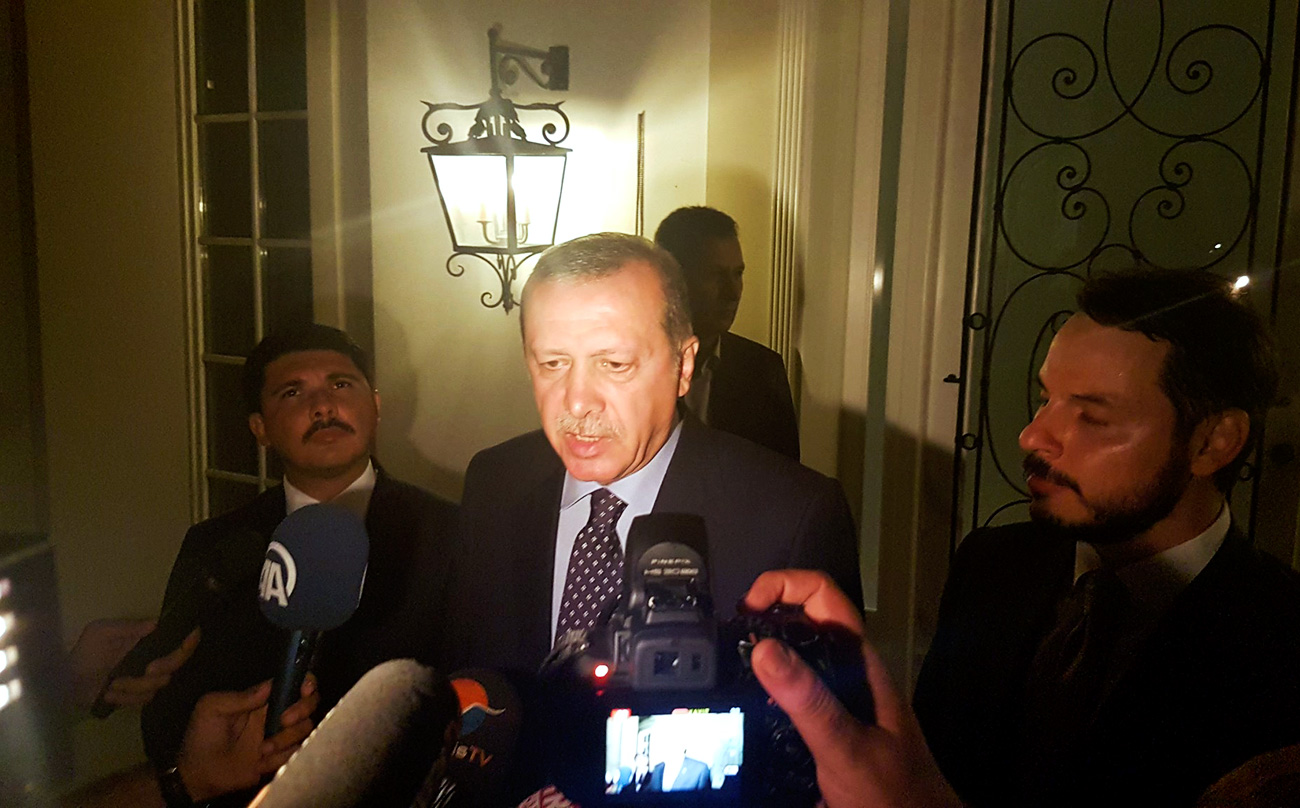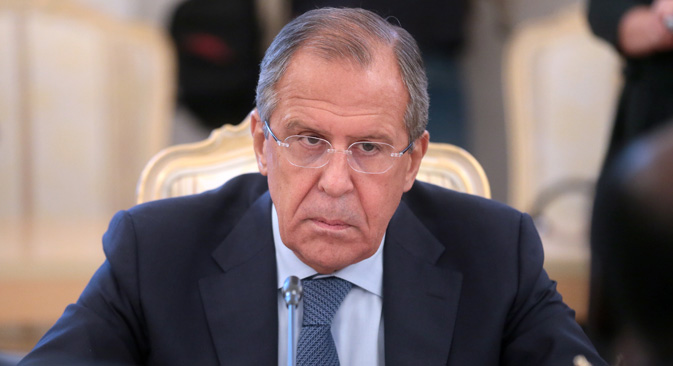How realistic is Erdogan's pivot to Moscow and Tehran?
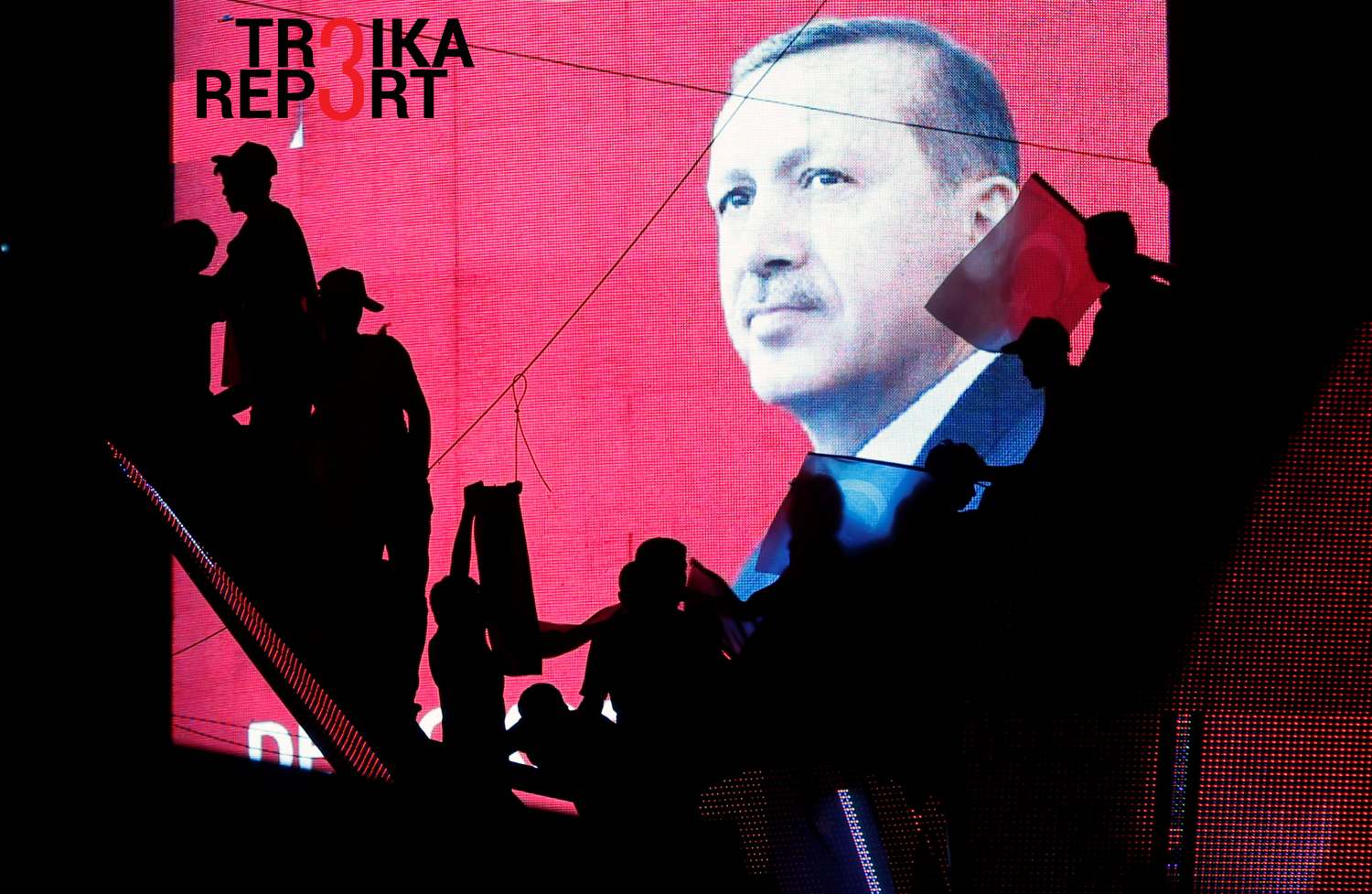
Vladimir Mikheev: "Putin set himself in contrast to Western leaders, notably from NATO who turned shy after the failed coup." Photo: Turkish Supporters are silhouetted against a screen showing President Erdogan during a pro-government demonstration in Ankara on July 17, 2016.
ReutersFollowing the failed attempt to overthrow the incumbent government in Ankara, Russian President Vladimir Putin made a phone call to Recep Tayyip Erdogan. The Russian leader offered his condolences to the Turkish president for the loss of the lives of the innocent civilians and law enforcers who opposed the plotters, and confirmed his support for the restoration of “constitutional order.”
Thus Putin set himself in contrast to Western leaders, notably from the NATO alliance of which Turkey is a bona fide member, who turned shy after the failed coup and chose not to speak directly to Erdogan, whose increasingly dictatorial stance and support for the Islamization of Turkish society have earned him a controversial reputation in the West.
Later, Erdogan called his Iranian counterpart Hassan Rouhani and made a remarkable statement: Ankara is ready to join efforts with Iran and Russia to restore peace and stability in the region.
Given the de facto proxy war being conducted on the Syrian battlefield where Ankara originally supported the insurgency against leader Bashar al-Assad while Tehran and Moscow rendered military assistance to the regime in Damascus, this, so far, verbal commitment by Erdogan to engage with Iran and Russia could entail a significant change in foreign policy.
Pennsylvania connection
The promise of a sudden warming up of relations on the Ankara-Moscow-Tehran axis could be attributed to the robust belief of Erdogan and his political adepts that the abortive coup was masterminded by the 75-year-old Turkish cleric Fethullah Gülen, who went into self-imposed exile in 1999 and has been residing ever since in the American state of Pennsylvania.
Gulen denies having had a hand in the conspiracy as well as having created what Erdogan’s government terms a “parallel structure” within the judiciary, education system, mass media, and the military.
Ankara’s insistence on the “Pennsylvania connection” must have irritated Washington. “Claims about any role by the United States in the failed coup attempt are utterly false and harmful” to bilateral relations between the United States and Turkey, said U.S. Secretary of State John Kerry.
Upping the ante, Turkish Prime Minister Binali Yildirim warned the United States that “there could even be a questioning of our friendship” over the contentious issue. Probably, this is as far as the head of government could go in putting pressure on an allied nation.
Demonization completed
The harsh rhetoric and tough stance taken by the Turkish government was largely due to the barrage of negative narratives in the Western media in the last year or two over Erdogan’s autocratic behavior.
“Mr Erdogan’s blustering, bulldozing style, together with his party’s growing intolerance for dissent, portends trouble,” postulated
The Economist in an article titled “Erdogan’s new sultanate” in February while the provocative question “Is It Time to Expel Turkey from NATO?” was put straight and square by U.S. global affairs journal The National Interest in December 2015.
The consistent and intense criticism of Erdogan and his policies certainly helped to mould Western public opinion against the new “sultan” – something that did not go unnoticed by the Erdogan government and contributed to the current deterioration of relations within the NATO alliance.
By virtue of comparison
After the incident on Nov. 24, 2015 when the Turkish air force shot down a Russian Su-24 jet along the Syrian border, bilateral relations between Russia and Turkey nosedived with the introduction of economic sanctions and the freezing of political dialogue, which had previously been vibrant and on a steep rising curve.
However, as Turkish political scientist and journalist Hakan Aksay noted in an extensive analysis for the news website T24 Yazarlari, Moscow did not consider closing down its embassy or fully rupturing diplomatic ties. The interaction on issues of cooperation in the energy sector, crucial to both countries (Turkey is the second-largest purchaser of Russian natural gas right after Germany) was low-key but not abandoned altogether.
Business on both sides has a stake in positive engagement. Russia’s state nuclear agency Rosatom had won the tender to build a nuclear power plant at Akkuyu in Mersin Province, and would not have been happy to squander this fortune.
Russian gas giant Gazprom is keen to build the Turkish Stream pipeline to sell natural gas to European customers, delivering it to the European part of Turkey through an offshore seabed pipeline under the Black Sea.
Meanwhile, the number one Russian bank, Sberbank, has a Turkish affiliate, Denizbank, and would like to establish a firm foothold in this lucrative market, supplemented throughout the last years by the almost 3.5 million Russian citizens who routinely vacation on the Turkish Riviera.
And then there is Russia’s largest private oil company, Lukoil, which operates a wide network of filling stations along major autoroutes in Turkey, and is determined to be viewed as a devoted mainstay.
The same is applicable to Turkish business, with brand names such as Enka, Vestel, Beko, Şişecam, Garanti Bankası, Pegas etc. having firmly made a mark on the Russian domestic market. Turkish construction companies have in their portfolio more than $10 billion-worth of Russian contracts, which is no small beer.
Remarkably enough, the last two decades have seem the emergence of another extraordinary social factor engendering a positive attitude to meaningful coexistence between Moscow and Ankara: interethnic marriages. The number of Turkish-Russian (and vice-versa) marriages now totals several million citizens in the former Ottoman Empire, most of whom have an interest in seeing an uptrend in bilateral relations.
Putting aside pride and prejudice
And yet, it will be hard for Moscow to patch up the quarrel. After all, Putin had described the downing of the Russian Su-24 jet as “a stab in the back, carried out by the accomplices of terrorists” and the pro-government media played up allegations that Erdogan and his family clan personally profited from smuggling and selling ISIS oil extracted from wells in the occupied parts of Syria and Iraq.
On the other hand, the limited room for maneuver left for Erdogan by his Western allies leaves Turkey few alternatives. Squeezed into a corner, Erdogan has made a painful – and hardly face-saving – decision to back off and end his squabbling with Israel and Russia by putting aside differences, grievances, pride and prejudice.
This means Russia should regard the recent overtures coming from Ankara and aimed at restoring dialogue as sincere. Forcedly sincere.
Basically, just as sanctions by the U.S. and the EU against Russia stimulated Moscow to proclaim its “pivot to Asia,” in particular to China, similarly the psychological pressure mounted on Erdogan by Western politicians and media is compelling Ankara to seek allies elsewhere. The hinted revision of Turkey’s foreign policy priorities seems to be genuine, but not necessarily feasible.
Read more: Is Germany aiming at a European rival to NATO?>>>
Subscribe to get the hand picked best stories every week
All rights reserved by Rossiyskaya Gazeta.
Subscribe
to our newsletter!
Get the week's best stories straight to your inbox
